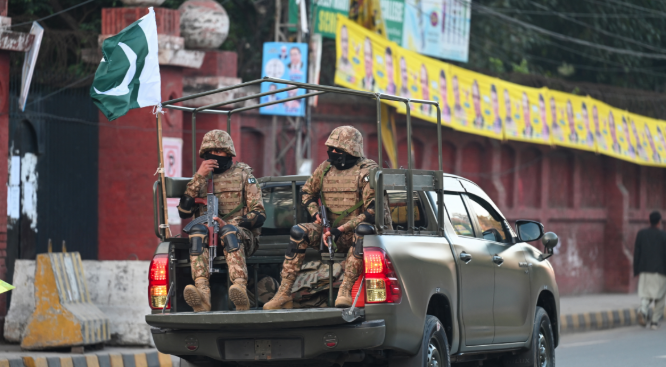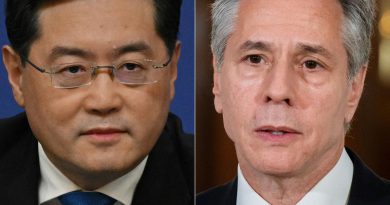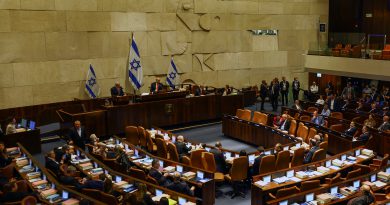OPINION: As an Indian Muslim, I say, Pakistan must stop killing civilians and sheltering terrorists
We do not seek war. We desire peace. But peace cannot come at the cost of silence against terror.
The recent Pahalgam terror attack has once again tested the patience and resolve of the Indian nation. The aftermath has taken us to the brink of yet another war-like situation between India and Pakistan. In response to the brutal killing of 26 Indian civilians, the Indian government launched Operation Sindoor, a precise military strike aimed at dismantling Jaish-e-Mohammed (JeM) terror infrastructure in Pakistan and Pakistan-occupied Kashmir (PoK).
According to reports, the Indian Air Force targeted 14 locations, including the JeM camps in Bahawalpur—reportedly killing 13 individuals associated with the terror outfit, some of them family members of the group’s chief, Masood Azhar. This decisive retaliation is a reflection of India’s zero-tolerance policy toward terrorism, particularly those sponsored or sheltered across the border.
But what followed was telling.
In retaliation, Pakistan shelled the border town of Poonch in Jammu & Kashmir. The victims were not military targets—they were civilians. Among the dead were Kashmiri Muslim children and women. These were our own people. This act by the Pakistani army reflects not strength, but a moral bankruptcy that has long plagued its strategic outlook. Instead of countering India’s military moves tactically, Pakistan chose to engage in indiscriminate shelling, targeting those who had no weapons, no uniforms, and no role in the military operations—just ordinary Indian Muslims.
This isn’t the first time Pakistan has committed such atrocities. If history teaches us anything, it’s that we’ve seen this script before. During the 1971 Bangladesh Liberation War, the Pakistani army reportedly killed over 300,000 Bengalis, according to the Bangladesh Genocide Archive. Most were Muslims. Many women were raped. Entire villages were wiped out. And yet, Pakistan continues to cloak itself in the garb of Islamic righteousness while violating every ethical and humanitarian code Islam prescribes.
This duality is not just deceptive—it is dangerous.
To the leaders of the Islamic world, I pose some hard questions:
Is Pakistan’s retaliation to India’s Operation Sindoor consistent with Islamic ethics?
Can the killing of Muslim children in Poonch be justified under any circumstances?
Is this the conduct of an “Islamic Republic”?
As an Indian Muslim, I say this with clarity and conviction: India is my homeland. It is a sovereign, pluralistic, democratic country that upholds the rights of all its citizens—Muslims, Hindus, Sikhs, Christians, and others. Our Constitution protects us, and our armed forces include us.
I was deeply moved watching a recent press conference where Colonel Sophia Qureshi, Wing Commander Vyomika Singh, and Ambassador Vikram Misri stood united, explaining the strategic aims of Operation Sindhoor. It was a portrait of unity: a Muslim woman in uniform, a Sikh diplomat, and a Hindu officer—this is the India we live in, and this is the India we love.
Let no one tell us we do not belong.
The Qur’an commands us clearly: “And if two groups among the believers should fight, then make peace between them. But if one oppresses the other, then fight against the one that oppresses until it returns to the command of Allah…” – Surah Al-Hujurat (49:9)
This is not a call to bloodshed—it is a call to justice. We fight oppression, not people. We fight terrorists, not civilians. And when peace is offered, Islam commands us to accept it. But if one side continues to shelter groups like Lashkar-e-Taiba or The Resistance Front, who actively undermine regional stability, then standing by and doing nothing is not an option.
Yes, Operation Sindoor may have caused some collateral damage. No life lost is ever trivial. But the mission had a clear objective: dismantle terror networks—not harm civilians. India’s action was measured and targeted. Pakistan’s was indiscriminate and vengeful.
As Indian Muslims, we draw our strength from both faith and patriotism. We are heirs to the legacy of Brigadier Muhammad Usman, the “Lion of Nowshera,” who laid down his life defending Kashmir in 1948. We remember Captain Haneefuddin, who fought bravely in the 1999 Kargil War. These are our heroes, our martyrs—Muslims who defended India against Pakistani aggression.
It is critical to understand that Islam encourages peaceful coexistence. When the Prophet Mohammed established the state of Madinah, he created a pluralistic charter involving Muslims, Jews, and pagans. He taught that alliances with non-Muslims are not just permissible, but necessary in the cause of justice and societal harmony. The story of Ja’far ibn Abi Talib, who sought refuge with the Christian King of Abyssinia, is a powerful reminder that justice transcends religion.
We Indian Muslims face many challenges—from Pakistani propaganda to the rise of far-right elements at home. Yet, we stand firm. We will not be pawns in foreign agendas. We will not be deceived by narratives that seek to divide us.
We say with dignity: Inqilab Zindabad. Hindustan Zindabad. Victory to India.
We may critique our government or hold differing political opinions, especially with regard to the ruling Bharatiya Janata Party (BJP). That is our democratic right. But our nation is not defined by any one party. India is defined by its people, its Constitution, and its unity in diversity.
We do not seek war. We desire peace. But peace cannot come at the cost of silence against terror. And peace cannot be preserved if Pakistan continues to target civilians and shelter jihadist outfits.
India reserves the right to protect itself. Under Public International Law, every sovereign nation has the right to eliminate threats to its people. That is what Operation Sindoor was about—and that is what justice demands.
Disclaimer: Views expressed by writers in this section are their own and do not reflect Milli Chronicle’s point-of-view.



